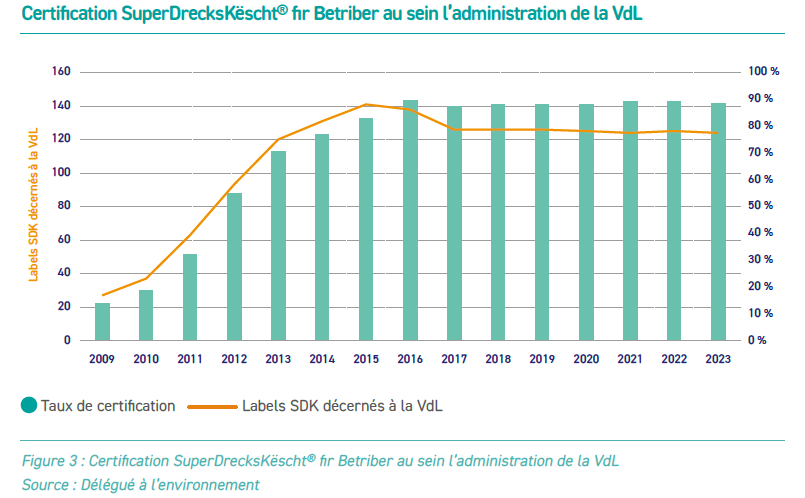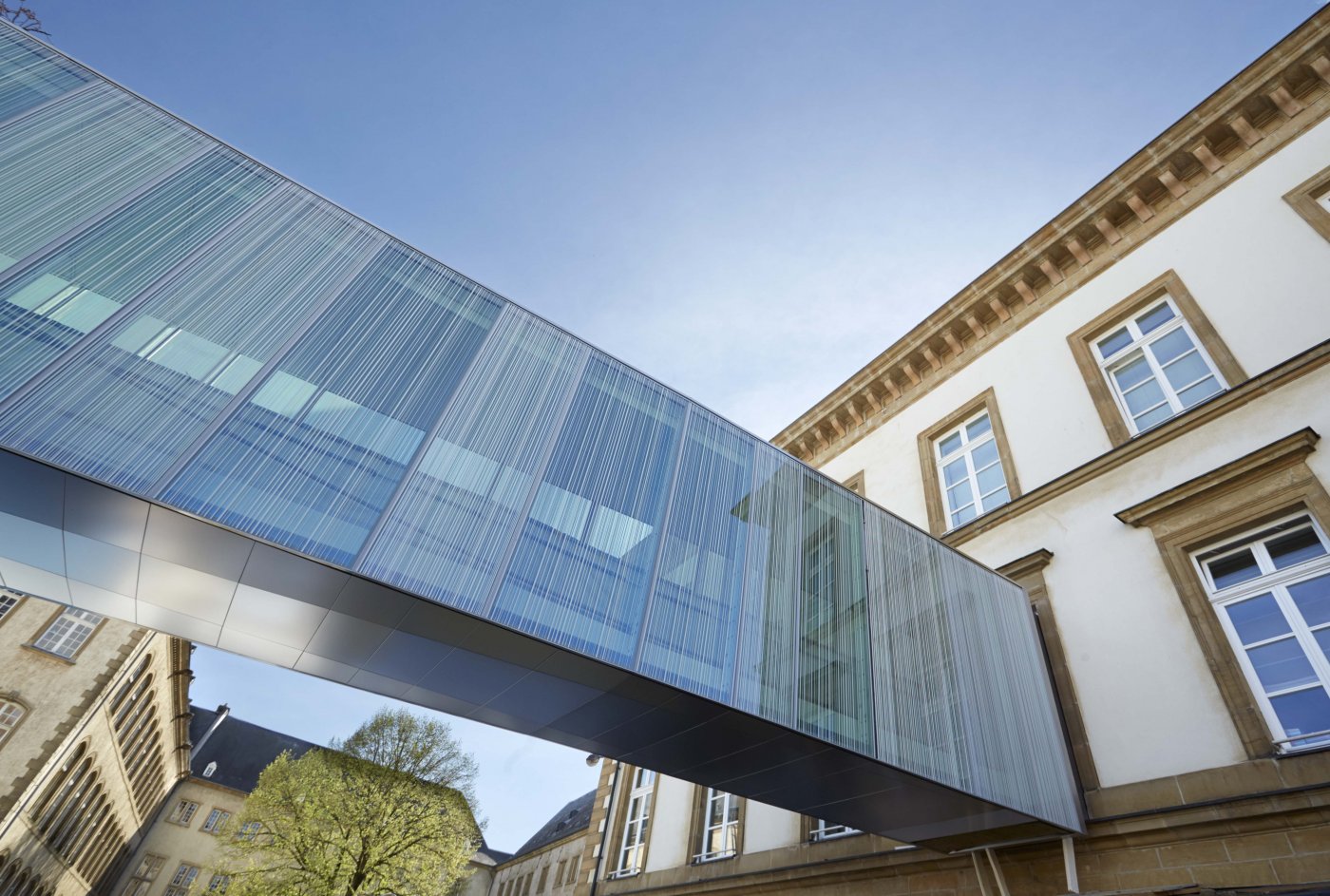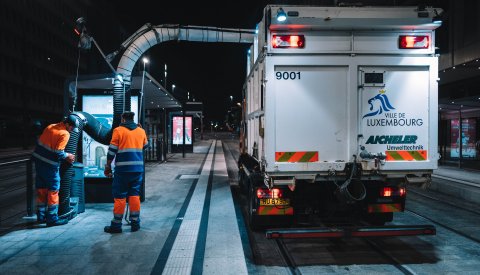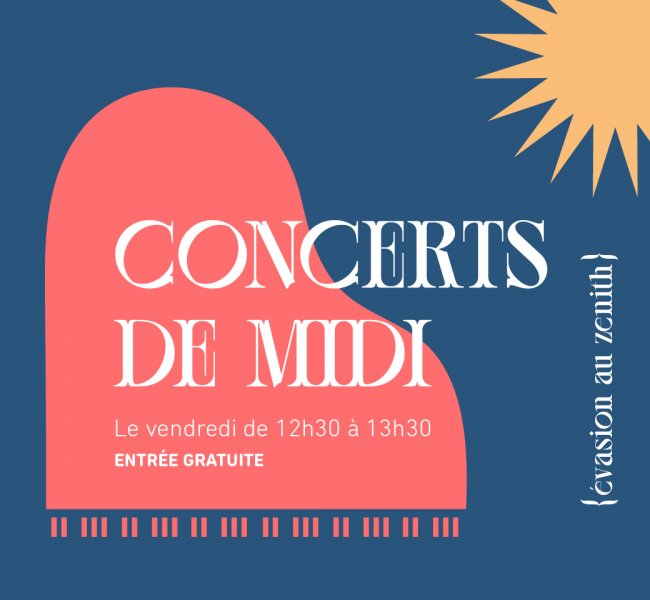Waste management
Luxembourg law on the management of waste requires local authorities to manage mixed municipal household waste and similar waste – including organic waste and other recoverable waste fractions – produced on their municipality, and to implement measures to reduce waste. In Luxembourg City, the Service Hygiène (Sanitation Department) is charged with this task.
In accordance with the law, the City of Luxembourg seeks to organise waste management so as to limit energy use and the impact on the environment. It does so by carrying out actions in the following order of priority:
- prevention
- preparation for reuse
- recycling
- other forms of recovery, in particular energy recovery
- disposal
Household waste and similar waste
Quantities of mixed municipal household waste and similar waste collected in Luxembourg City are showing a downward trend. The City of Luxembourg continues to work towards meeting the target set by the European Union, which calls for the recovery of at least 50% of mixed municipal household waste as of 2020. The quantity of waste per capita has been on a downward trend since 2004.
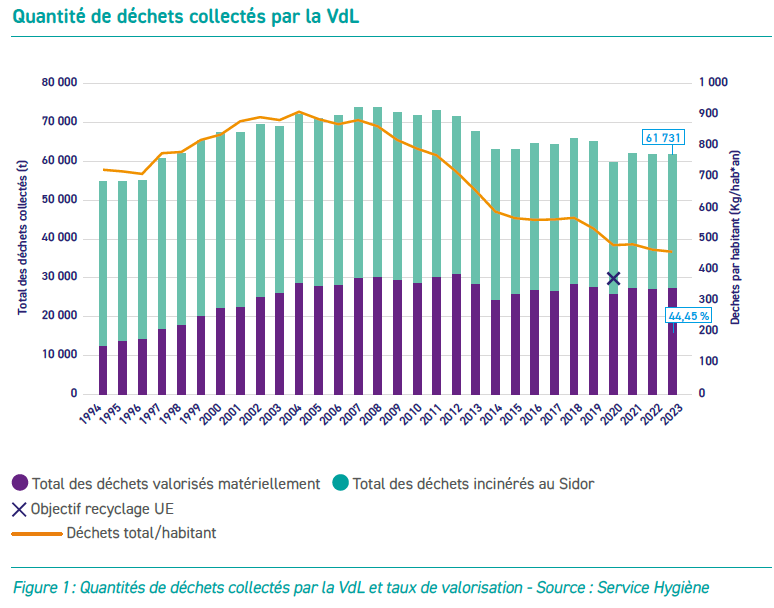
Organic waste
According to a study on the optimisation of mixed municipal household waste recovery, the portion of organic waste in brown bins represents a significant potential source of renewable energy.
In October 2010, the Service Hygiène introduced a separate collection service for organic household waste. By the end of May 2012, the service had been extended to all city districts. Biomethanisation takes place at the Minett Kompost plant in Schifflange. The collection service was gradually improved, and has been implemented in its current form since 2013.
- curbside collection of food waste in brown bins
- curbside collection of grass clippings in brown bins or bags
- on-demand collection of woody waste (loose or in containers)
- option to drop off wood waste and grass clippings at the Resource Centre
- removal of bins from public areas given the popularity of alternative solutions
Incineration
The modernisation of the SIDOR incineration plant has helped to improve its energy efficiency by recovering heat not only for electricity generation, but also for the district heating system. Together with the installationof a new district heating network fed by the incineration plant and serving the Ban de Gasperich business park, this optimisation process helps reduce carbon dioxide emissions. In light of the current yield of the modernised incineration plant, incineration can be considered as an energy recovery process within the meaning of the European Waste Framework Directive (2008/98/EC).
Recycling
Curbside collection of glass; collection of paper and cardboard; and curbside collection of PMD packaging (large and small plastic bottles, metal cans and beverage cartons) recovered and recycled by Valorlux
.
The Resource Centre celebrated its 35th year of operation in 2023. It allows Luxembourg City residents to dispose of their recyclable and hazardous waste in an environmentally friendly manner.
A large number of public collection points for waste paper and cardboard, glass, textiles and used batteries are located throughout the city, rounding out its solutions to encourage recycling. For details, go to www.topographie.lu.
Public events
In order to significantly reduce the quantities of waste produced during public events, the City of Luxembourg has introduced the use of reusable containers for food and drinks. The City now logs more than 100,000 cup rentals each year, as well as over 1,500 rentals of porcelain dishes.
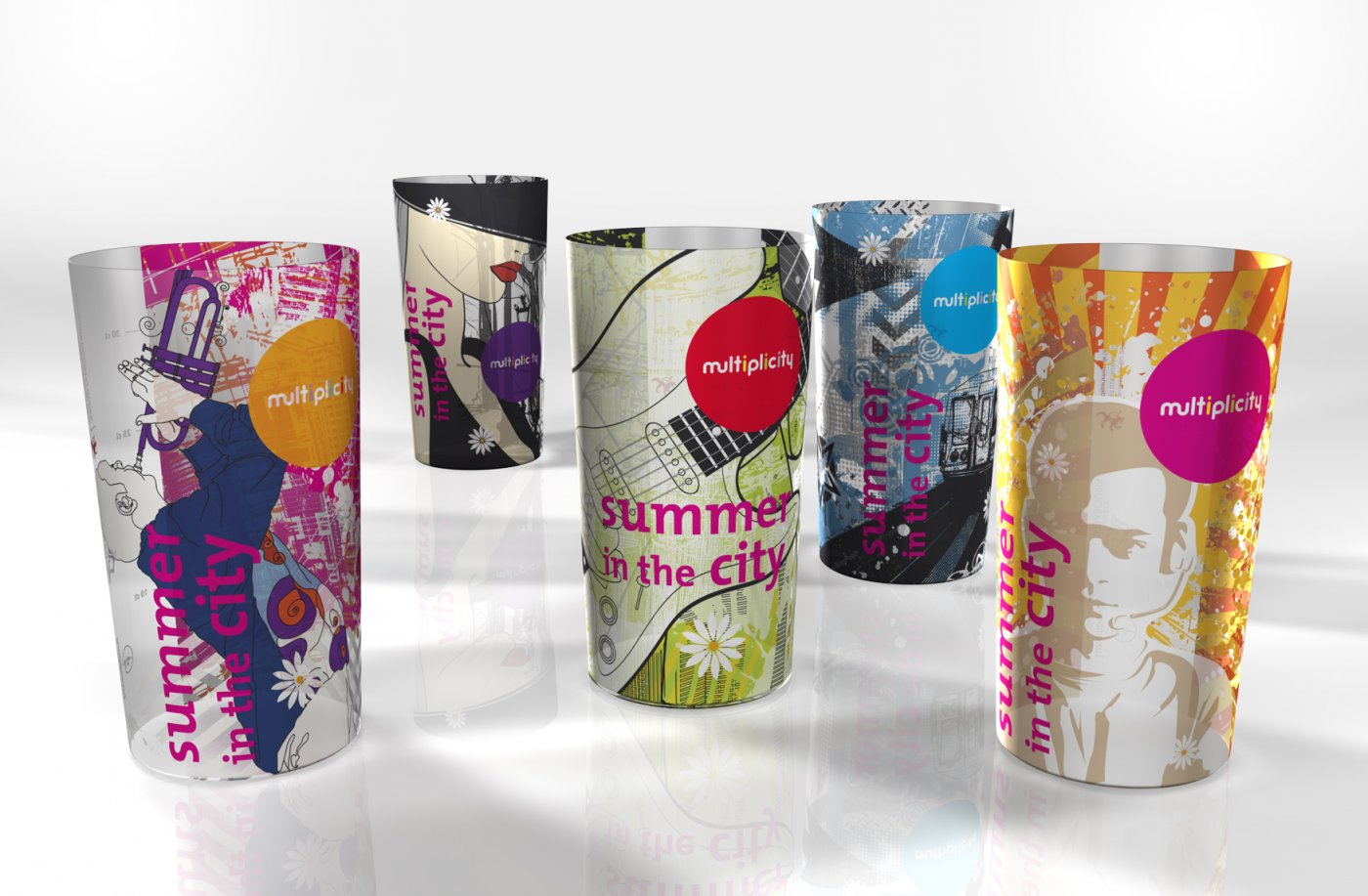
Internal management
Some City of Luxembourg departments have been "SuperDrecksKëscht® fir Betriber" certified for many years: Service Véhicules et maintenance (Vehicles and Maintenance Department) since 1994, Service Circulation (Traffic Department) since 1995, and Service Hygiène (Sanitation Department) since 1996. This label recognises the quality of the waste prevention, sorting and recovery procedures put in place by the City's departments, in keeping with the City of Luxembourg's commitment to environmental protection. The agreement with SuperDrecksKëscht provides for the extension of the certification to all 154 municipal buildings. The City of Luxembourg's certification rate was 90% of all certifiable buildings.
